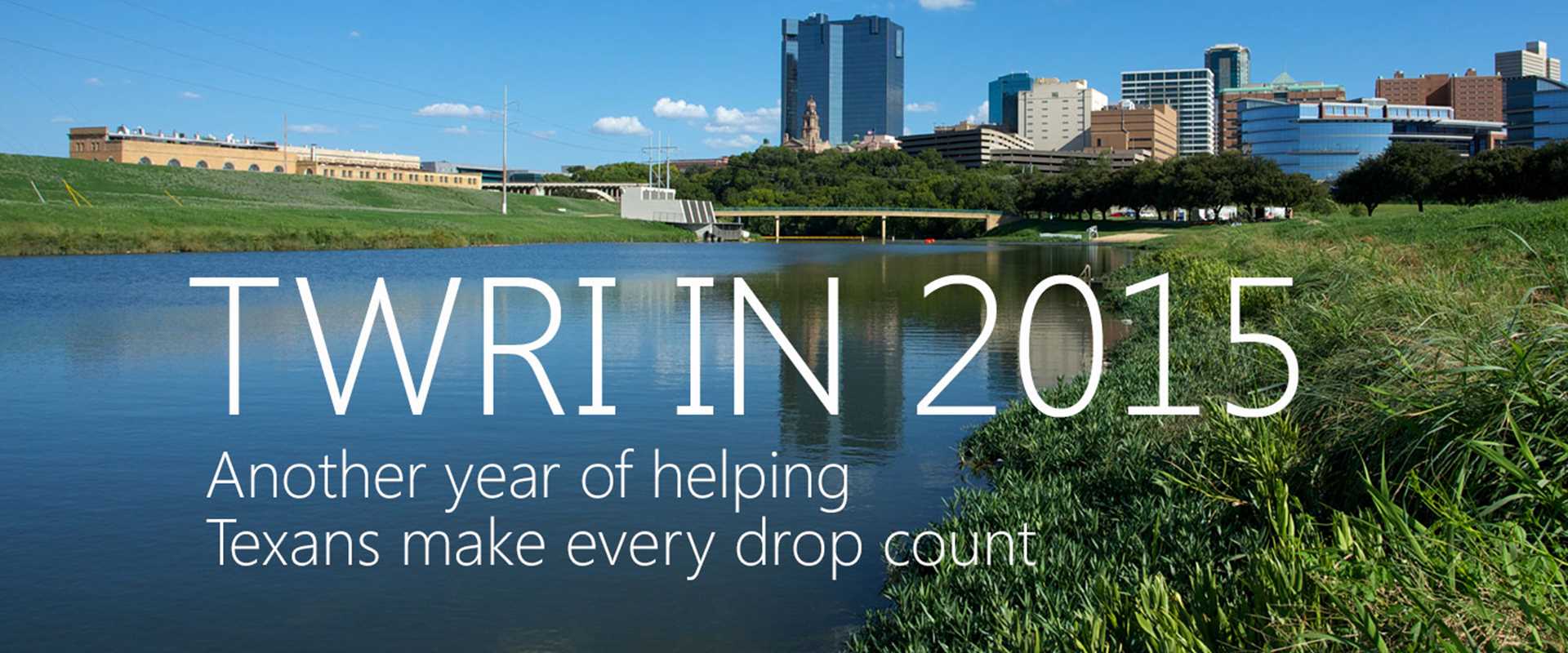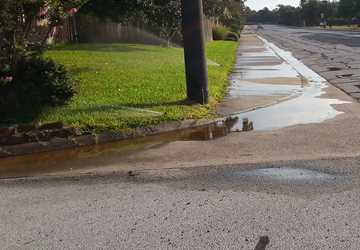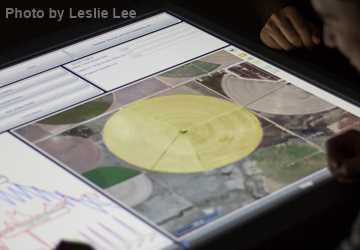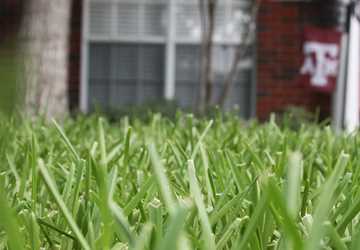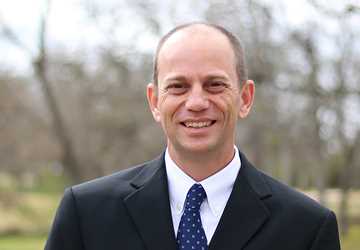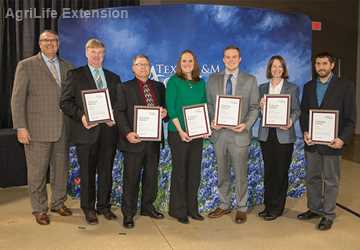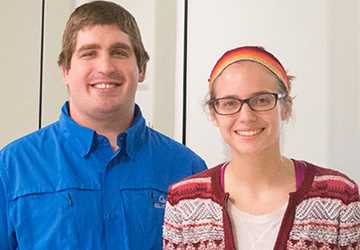By Leslie Lee
The Texas Water Resources Institute (TWRI) has been helping solve Texas’ water issues through research, education and outreach for more than 60 years. In 2015, TWRI’s projects produced numerous accomplishments, and new leadership and opportunities arrived with the announcement of Dr. John C. Tracy as institute director in December.
New urban water resiliency project begins
Funded by the National Science Foundation in 2015, The New 100th Meridian: Urban Water Resiliency in a Climatic and Demographic Hot Spot project is co-led by the University of Texas’ Environmental Science Institute (UT–ESI), TWRI, Texas Tech University and the University of Texas at San Antonio. As Central Texas experiences population booms and widespread land-use changes, researchers are studying the interconnected changes projected for the region’s climate, water availability, population and land use, all of which will impact its future water resiliency.
A research network will coordinate efforts to address the region’s rapidly changing human and natural systems, focusing on four research nodes — climate projections, water science, water and population scenarios, and resiliency and stakeholders. With UT–ESI, TWRI is co-leading the network’s resiliency and stakeholders research node, which will help assess potential decisions and actions of municipal, regional and state government and area stakeholders.
A continuing legacy of watershed protection
As a statewide leader in watershed planning and implementation, TWRI is continually engaging with local stakeholders in watersheds around the state to help improve water quality.
In the Lower Rio Grande Valley, after a decade of successful implementation by stakeholders and TWRI, the Arroyo Colorado Partnership is updating its watershed protection plan to enhance its impact.
In East Texas, the Attoyac Bayou Watershed Protection Plan was accepted by the U.S. Environmental Protection Agency and is now being implemented with TWRI’s help.
Supporting Extension programs
Partnering with the Texas A&M AgriLife Extension Service is essential to TWRI’s effectiveness. The institute helps support many AgriLife Extension programs educating Texans in natural resources stewardship.
TWRI supports Texas A&M’s Department of Soil and Crop Sciences’ continuation of the award-winning Texas Well Owner Network Program, which helps private water well owners around the state ensure their drinking water quality. The department and TWRI will also launch the Healthy Lawns and Healthy Waters Program in 2016. The institute’s Texas Riparian and Stream Ecosystem Education Program continues providing trainings in priority watersheds around the state as well as valuable online resources.
As work keeps TWRI’s researchers and professionals busy and the institute continues to grow and evolve, Texans can keep counting on TWRI as a source for reliable water research and educational resources and programs.
More of TWRI’s 2015 impacts are in the institute’s 2015 Annual Report.
2015 Highlights
- The Texas Well Owner Network won a 2016 AgriLife Extension Superior Service Award and a 2015 Extension Education Community Education Materials Award from the American Society of Agronomy.
- TWRI secured $3 million of U.S. Department of Agriculture’s Natural Resources Conservation Service Regional Conservation Partnership Program funding to improve water quantity and quality in the Lower Rio Grande Valley.
- The Advanced Metering Infrastructure (AMI) web portal assists consumers in reducing water use and helps utilities provide better customer service. In 2015, two guidebooks were developed and eight trainings were held. Preliminary results demonstrated 8.7 to 17 percent seasonal reductions in water use by portal users.
- TWRI supports and helps lead the newly formed Texas A&M Water-Energy-Food Nexus Initiative, which is committed to solving the challenges of sustaining these three interconnected resources.
- In the Arroyo Colorado Watershed, more than 100,000 residents were educated on physical watershed processes through a model displayed at 221 events. Forty-two colonias with 17,054 residents decommissioned their septic systems and connected to centralized wastewater treatment plants through TWRI’s efforts.
- The Leon River Watershed Protection Program educated landowners on best management practices through more than 30 field days and workshops and facilitated the repair or replacement of more than 65 failing septic systems.
- TWRI partnered with 30 local, state and federal water management agencies; 21 Texas A&M centers, departments and institutes; 17 universities; nine NGOs and consulting firms; and numerous stakeholder groups.

